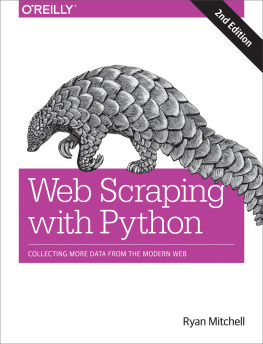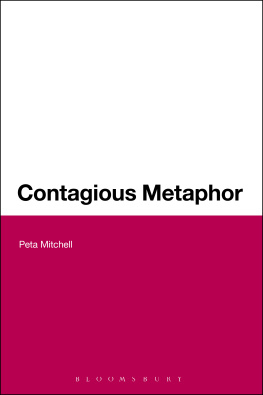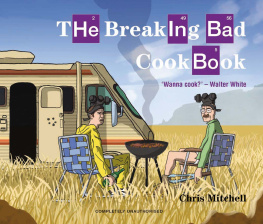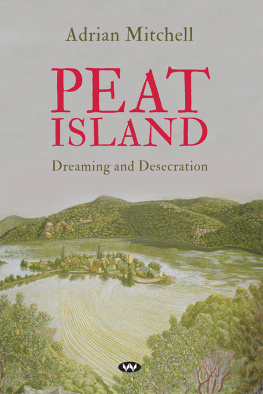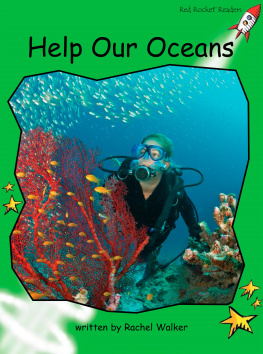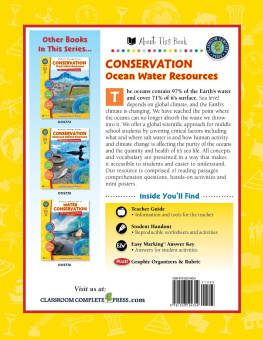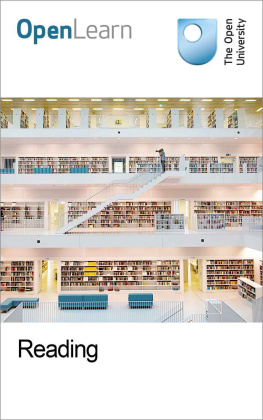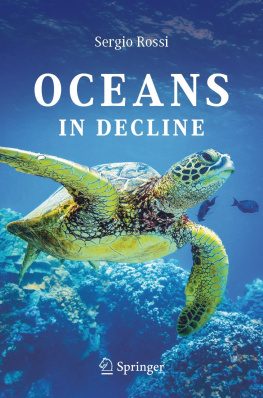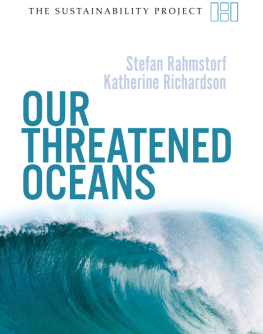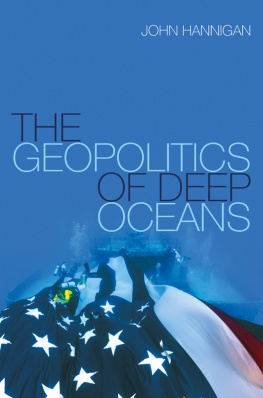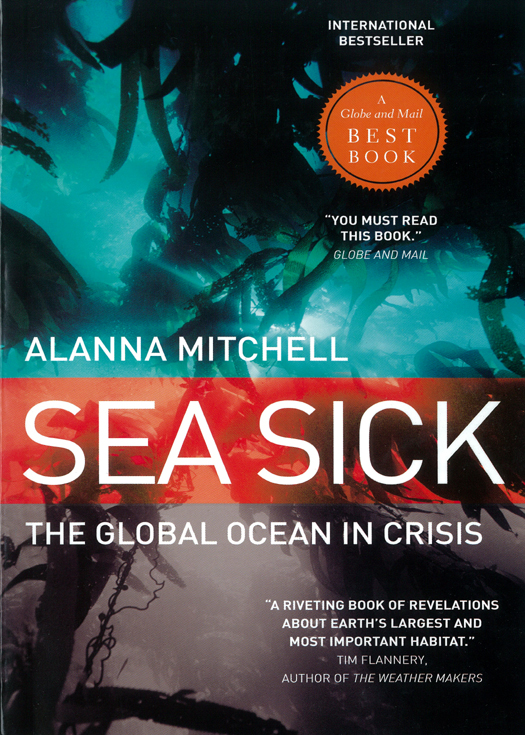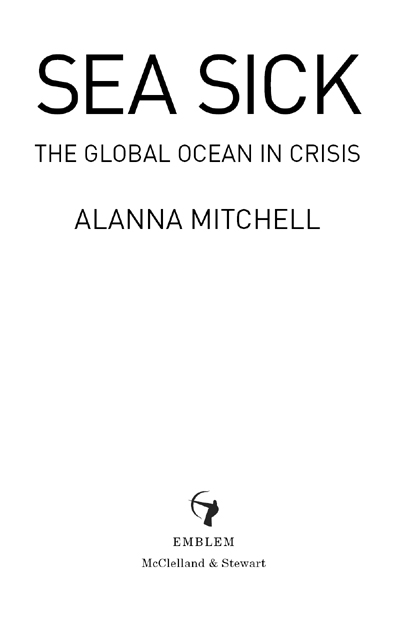Since Al Gore galvanized world opinion about global climate change, there has been widespread agreement on the nature and impact of global warming. But no one has yet tackled the hidden crisis of our impact on the worlds oceansuntil now.
All life on Earth depends on the oceans. Most of the planets oxygen is produced by phytoplankton in the seait is these humble, one-celled organisms, rather than the spectacular rain forests, that are the true lungs of the planet. And our climate, even on land, is controlled by the oceans, regulated by their currents, winds, and water-cycle activity.
Sea Sick is the first book to examine the current state of the worlds oceans, and the great unexamined ecological crisis of the planet: the fact that we are altering everything about the oceans, from their temperature, salinity, and acidity, to the life within them. Alanna Mitchell joins the crews of leading scientists in nine of the global oceans hotspots to see firsthand what is really happening around the world. Whether its the impact of coral reef bleaching, the puzzle of the oxygen-less dead zones such as the one in the Gulf of Mexico, or the shocking implications of the changing pH balance of the sea, Mitchell explains the science behind the story to create an engaging, accessible, and authoritative account.
MORE ACCLAIM FOR Sea Sick
Sea Sick is the most comprehensive book to date on the state of our oceans. a powerful and deeply unsettling story about our collective abuse of the cradle of all life. Fortunately, [Mitchell] gives us hope and a path forward if we have the wisdom to act.
Maude Barlow
Mitchell has brilliantly woven together the threads of science taking place all over the world pointing to an accelerating crisis in the worlds oceans. That she still finds reasons to hope is one reason you must read this book.
Elizabeth May
Death is running amok on the earth, but especially in the sea. If you would know how and why, read Sea Sick although it may make you heartsick.
Farley Mowat
Alanna Mitchells informative and deeply moving book gives a wonderful portrait of a global marine ecosystem that desperately needs both greater popular understanding and international protection against looming catastrophe.
Mark Lynas, author of Six Degrees: Our Future on a Hotter Planet
A strong examination of degraded global ocean health based on years of research with top world scientists.
Vancouver Province
Even the most enthusiastic of environmentalists might find it difficult to comprehend an ecological thriller. However, in this exhilarating account of the oceans demise, Alanna Mitchell has produced just that.
The Ecologist
The energetic author rides catamarans and snorkels around the world to explain the threats to corals and turtles, and why we all rely on plankton. She journeys to the Gulf of Mexico to see a thing called the blob (a big body of low-oxygen water, or dead zone), stops off in China and Zanzibar, and even ends up climbing the Pyrenees. The resounding lesson, by the end, is that man has unwittingly become part of the marine habitat, and our behaviour has to change.
The Guardian
To understand the current state of our planet, I highly recommend that every Canadian get a copy of Alanna Mitchells book Sea Sick.
Peter Stoffer, MP, addressing the House of Commons
Copyright 2009 by Alanna Mitchell
Cloth edition published 2009
Emblem edition published 2010
Emblem is an imprint of McClelland & Stewart Ltd.
Emblem and colophon are registered trademarks of McClelland & Stewart Ltd.
All rights reserved. The use of any part of this publication reproduced, transmitted in any form or by any means, electronic, mechanical, photocopying, recording, or otherwise, or stored in a retrieval system, without the prior written consent of the publisher or, in case of photocopying or other reprographic copying, a licence from the Canadian Copyright Licensing Agency is an infringement of the copyright law.
Library and Archives Canada Cataloguing in Publication
Mitchell, Alanna
Sea sick : the global ocean in crisis / Alanna Mitchell.
eISBN: 978-1-55199-341-6
1. Oceanography. 2. Marine ecology. 3. Marine pollution.
4. Human ecology. I. Title.
GC28.M58 2010 333.9164 C2009-905160-5
We acknowledge the financial support of the Government of Canada through the Book Publishing Industry Development Program and that of the Government of Ontario through the Ontario Media Development Corporations Ontario Book Initiative. We further acknowledge the support of the Canada Council for the Arts and the Ontario Arts Council for our publishing program.
Cover photograph: Georgette Douwma/Getty Images
McClelland & Stewart Ltd.
75 Sherbourne Street
Toronto, Ontario
M5A 2P9
www.mcclelland.com
v3.1
This book is for
James Kenneth Patterson
and his remarkable uncle
Kenneth Mark Drain
CONTENTS
PROLOGUE
Last days of an ocean system
CHAPTER 1 Great Barrier Reef, Australia
The last best place on earth
CHAPTER 2 Gulf of Mexico, U.S.A.
Reading the vital signs: Oxygen
CHAPTER 3 Puerto Rico
Reading the vital signs: pH
CHAPTER 4 Plymouth, England
Reading the vital signs: Metabolism
CHAPTER 5 Panama
Reading the vital signs: Fecundity
CHAPTER 6 Halifax, Canada
Reading the vital signs: Life force
CHAPTER 7 Spain
Reading the vital signs: Medical history
CHAPTER 8 Hainan Province, Peoples Republic of China
Reading the vital sign that is China
CHAPTER 9 Zanzibar, Tanzania
Reading the vital signs: Adaptability
CHAPTER 10 Off the Florida Keys, U.S.A.
Finding hope
EPILOGUE
A call for wisdom
PROLOGUE
LAST DAYS OF AN OCEAN SYSTEM
Tim Flannery was barefoot the evening I met him, pants rolled up to below his knees. It was dusk and we had found each other in the unlikely town of Whyalla, South Australia, where, it is said, the outback meets the sea.
Our meeting was sheer serendipity. The two of us had happened to fly into this remote town of 22,000 on the same plane the night before and he had been at meetings all day with the towns steelmaker, continuing his international tour de force of explaining global climate change to the public, business leaders and politicians.
His book The Weather Makers: How We Are Changing the Climate and What It Means for Life on Earth, Al Gores book and movie An Inconvenient Truth: The Planetary Emergency of Global Warming and What We Can Do About It, and the report by Sir Nicholas Stern, the former chief economist of the World Bank, on the financial consequences of ignoring climate change have been the one-two-three punch that has convinced the public that global climate change is more than, well, hot air.
Their combined effectin concert with Hurricane Katrinas devastating tear through New Orleans in August 2005has been remarkable. As I researched this book across five continents and over two and a half years, everyone I spoke with could pinpoint the moment that the public discourse changed from whether or not global climate change was real to what humanity needed to do about it: the third quarter of 2006, after the cumulative effect of Katrina, Flannery, Stern and Gore.


